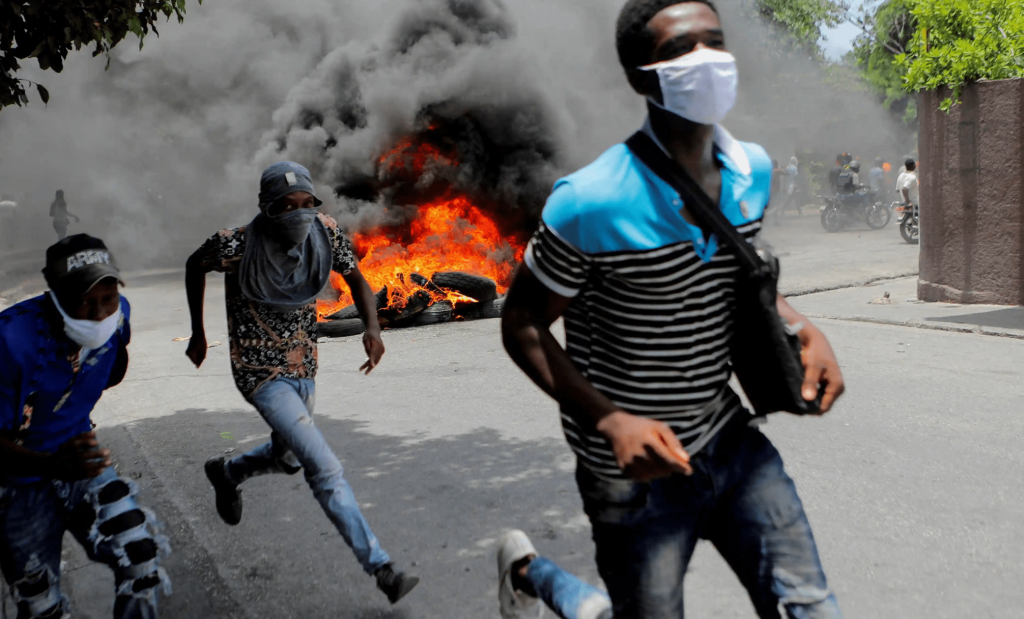
Photo Credit: Ralph Tedy Erol/Reuters
By: Anthony Puntasecca, 2L
The Haitian people have become increasingly familiar with political instability; the last twenty years have produced only one successful transfer of presidential power between elected officials. Specifically, there has been no president for the last three years following the assassination of Jovenel Moise in 2021. The subsequent appointment of Ariel Henry as Prime Minister by the Core Group has served as a catalyst for an influx of gang violence, or armed revolution, with Port-Au-Prince as the battleground. Henry’s appointment has faced widespread opposition for being unconstitutional, with many calling for his resignation.
One such opposing force is the G9 Family and Allies, a coalition of previously warring gangs unified by ex-police officer Jimmy “Barbeque” Chérizier. Barbeque, with strong ties to Haitian politicians from his earlier career, is a charismatic leader portraying himself as the protector of the Haitian people. With this unified force, Barbeque pressured Henry into resigning, yet this change in office came at a price.
Beginning in March, Port-Au-Prince has become the epicenter of the worst gang warfare Haiti has seen in recent years. From kidnappings and recorded torture for eliciting ransom payments, to armed raids of police stations, airports, and prisons resulting in over 4,000 inmates being released, violence has resulted in over 33,000 people having fled Port-Au-Prince this month alone. This recent violence has put Haiti on track to see 30% more people killed or injured in gang violence compared to last year. Similarly, with the absence of Ariel Henry, and the failure of his transitional government to take hold, nearly 80% of Port-Au-Prince is estimated to be under gang control.
Henry’s attempts to restore order to Haiti also include negotiating with foreign nations for financial and military support. Specifically, Henry has convinced the Kenyan government to send 1,000 police officers to aid the Haitians in their fight against gang violence. However, this plan has been met with harsh scrutiny, first by the people of Haiti who are reluctant to accept outside involvement in their internal affairs, and secondly by the Kenyan High Court. Opponents in Kenya contend that this agreement is Unconstitutional because there is no reciprocal agreement between Henry and Kenya. Others argue that the Kenyan police force is not authorized to leave Kenyan territory and that Henry has no constitutional powers to bind Haiti to any agreement, due to the nature of his appointment to office.
Unfortunately, as Henry and the Kenyan government attempt to reach an agreement, the situation in Haiti is decreasing rapidly. It is reported that the gangs gain territory in the capital with each day the transitional government is in power and that the people of Haiti face the new danger of an impending famine caused by low crop yields and gangs gaining control over farmland. Whether internal or external, it is clear that the people of Port-Au-Prince require a drastic change.




